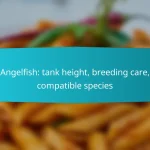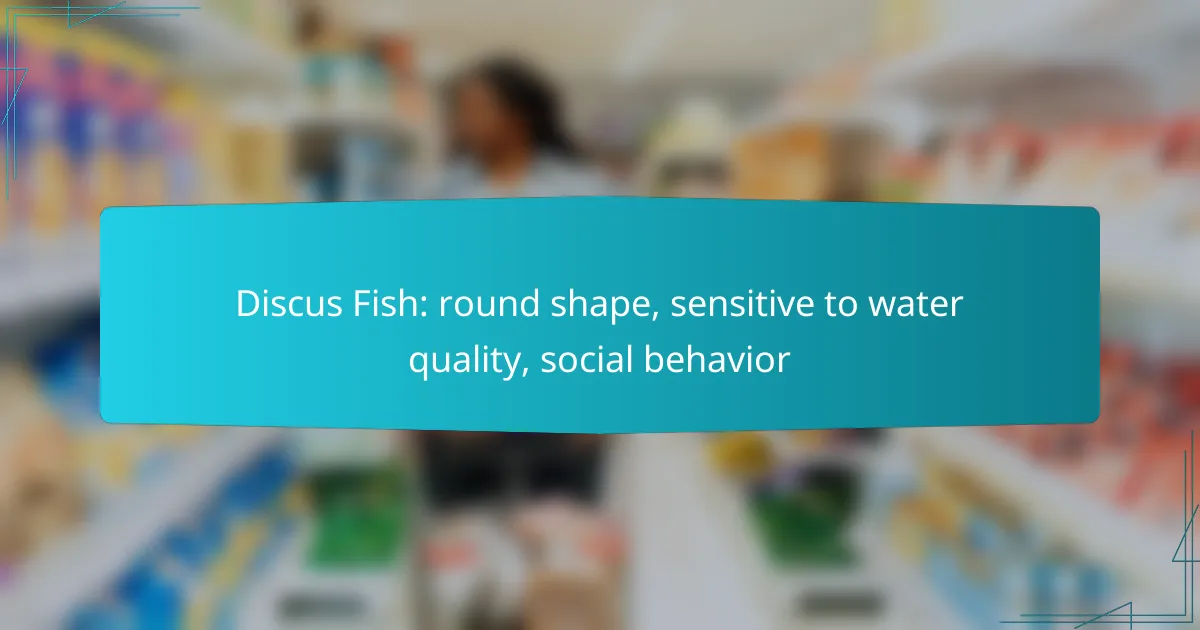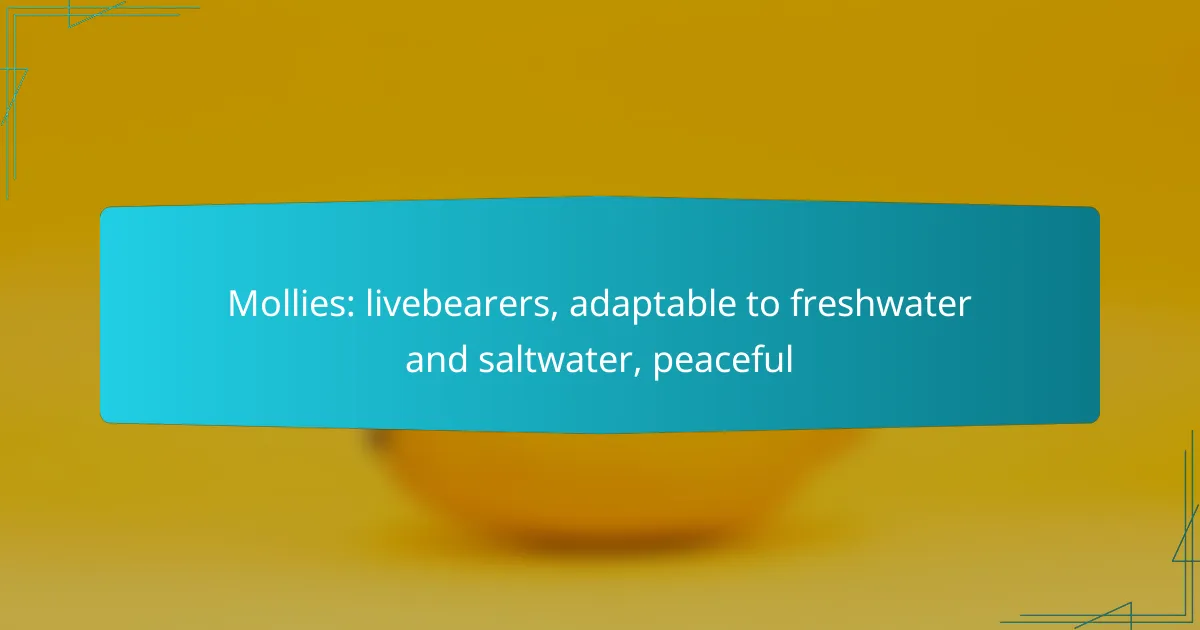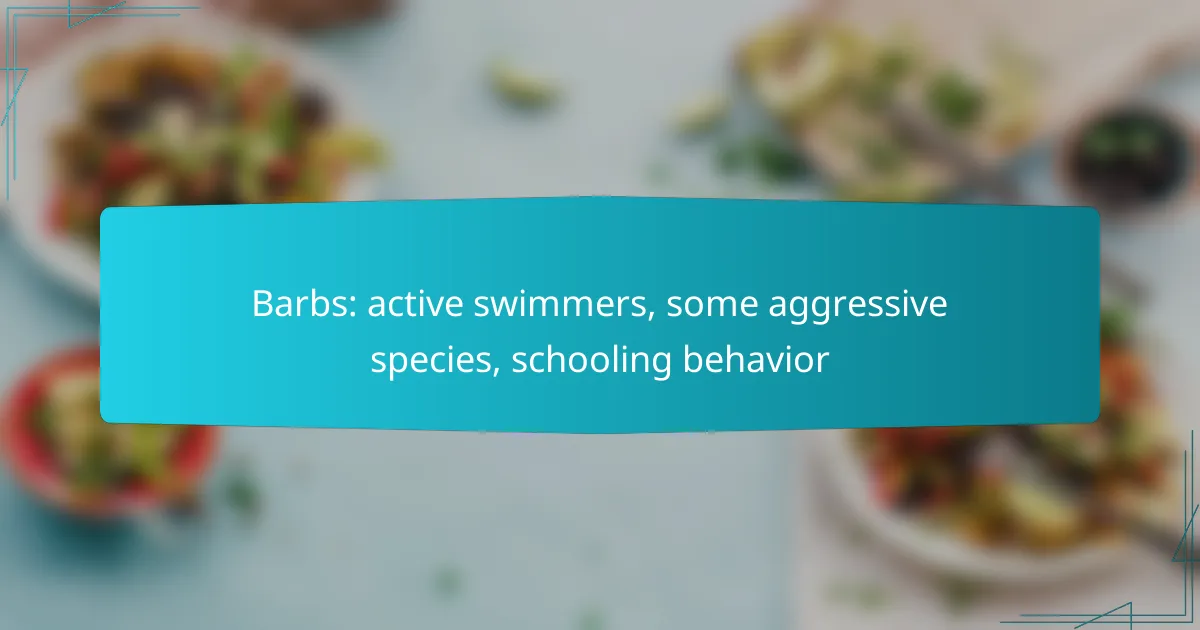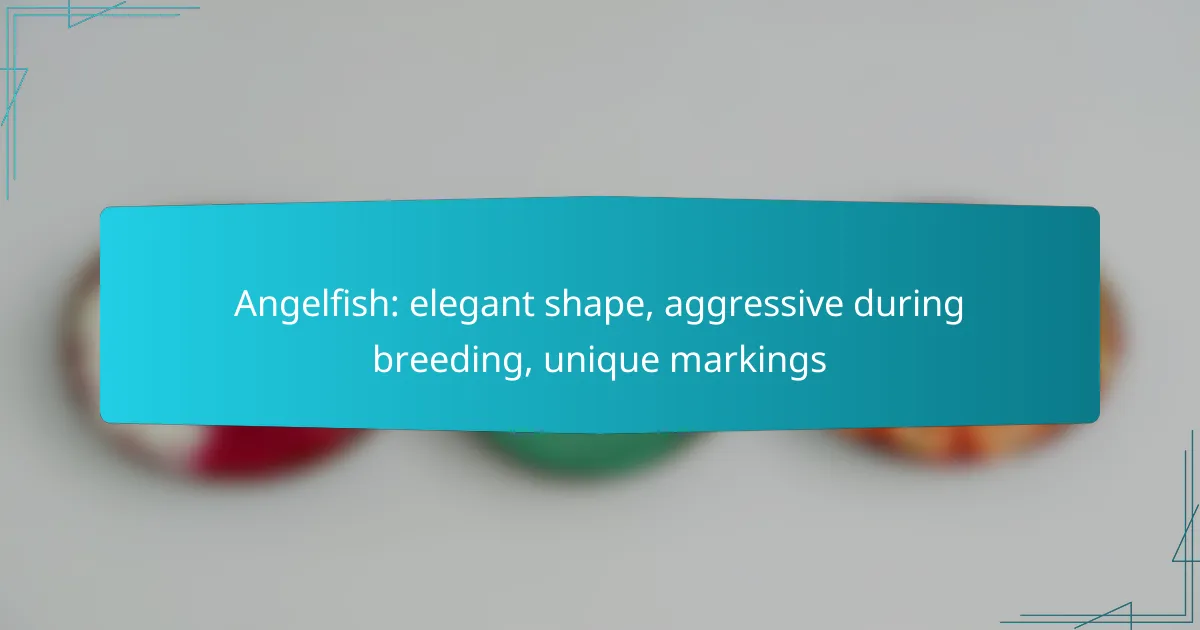Discus fish are renowned for their distinctive round shape and vibrant colors, making them a popular choice among aquarium enthusiasts. However, their sensitivity to water quality necessitates careful monitoring to ensure a healthy environment. These social creatures thrive in community tanks with compatible, non-aggressive tank mates, enhancing their well-being and overall vibrancy.

How to maintain water quality for discus fish?
Maintaining water quality for discus fish is crucial for their health and well-being. Regular monitoring and management of water parameters ensure a stable environment that supports their sensitive nature.
Regular water changes
Performing regular water changes is essential for keeping discus fish healthy. Aim for changing 25-50% of the water weekly to remove toxins and replenish essential minerals. This practice helps maintain stable water conditions and reduces the risk of disease.
When changing water, use a siphon to remove debris from the substrate and ensure that the new water is treated to remove chlorine and other harmful substances. Consistency in water changes is key to a thriving discus environment.
Use of water conditioners
Water conditioners are vital for creating a safe habitat for discus fish. These products neutralize harmful chemicals like chlorine and chloramine, making tap water safe for use. Look for conditioners that also detoxify heavy metals, as these can be harmful to sensitive fish.
Additionally, some conditioners can help establish beneficial bacteria in the aquarium, which aids in biological filtration. Always follow the manufacturer’s instructions for dosage to avoid over-treatment.
Monitoring pH and temperature
Discus fish thrive in specific pH and temperature ranges, making regular monitoring essential. Ideally, keep the pH between 6.0 and 7.5 and the temperature between 26°C and 30°C (78°F to 86°F). Sudden changes in these parameters can stress the fish and lead to health issues.
Use reliable thermometers and pH test kits to track these levels consistently. If adjustments are needed, do so gradually to avoid shocking the fish.
Filtration systems
A good filtration system is crucial for maintaining water quality in a discus tank. Choose a filter that provides both mechanical and biological filtration to effectively remove waste and toxins. Canister filters or high-quality hang-on-back filters are popular choices for discus aquariums.
Ensure that the filter’s flow rate is appropriate for the size of the tank and the needs of the fish. Discus prefer gentle water movement, so consider using a filter with adjustable flow settings.
Testing kits
Testing kits are essential tools for monitoring water quality in discus fish tanks. Regularly test for ammonia, nitrite, nitrate, pH, and hardness to ensure a healthy environment. Most aquarium supply stores offer comprehensive test kits that provide accurate readings.
Establish a routine for testing water parameters, ideally once a week. Keeping a log of your results can help you identify trends and make necessary adjustments to maintain optimal conditions for your discus fish.

What are the best tank mates for discus fish?
Discus fish thrive in a peaceful community tank with compatible tank mates that share similar water quality needs. Ideal companions are typically small, non-aggressive species that can coexist harmoniously with the sensitive nature of discus.
Neon tetras
Neon tetras are excellent tank mates for discus fish due to their small size and peaceful demeanor. These vibrant fish prefer similar water conditions, such as slightly acidic to neutral pH and warm temperatures, making them a suitable choice for a discus aquarium.
When keeping neon tetras with discus, ensure that the group is large enough—at least six individuals—to minimize stress and promote natural schooling behavior.
Cardinal tetras
Cardinal tetras are another great option for tank mates, as they are slightly larger than neon tetras but still small enough to avoid aggression from discus. They thrive in similar water conditions, which helps maintain a stable environment for all fish.
Like neon tetras, cardinal tetras should be kept in groups of six or more to encourage social interaction and reduce stress levels in the tank.
Rummy nose tetras
Rummy nose tetras are known for their striking coloration and peaceful nature, making them suitable companions for discus fish. They prefer warm water and slightly acidic conditions, aligning well with the needs of discus.
These tetras are best kept in schools of six or more, as their social behavior enhances the overall dynamics of the tank, benefiting both rummy nose tetras and discus.
Angelfish
Angelfish can be kept with discus fish, but caution is advised due to their potential for territorial behavior, especially during breeding. Both species prefer similar water conditions, but angelfish can be more aggressive than the other recommended tank mates.
To successfully house angelfish with discus, ensure ample space and hiding spots, and monitor interactions closely to prevent stress or aggression.
Other peaceful cichlids
Other peaceful cichlid species can also coexist with discus fish, provided they are non-aggressive and share similar water quality preferences. Examples include keyhole cichlids and ram cichlids, which are generally more docile.
When introducing other cichlids, observe their behavior closely to ensure compatibility and adjust tank conditions as needed to maintain harmony within the community. Aim for a balanced mix of species to create a thriving aquatic environment.
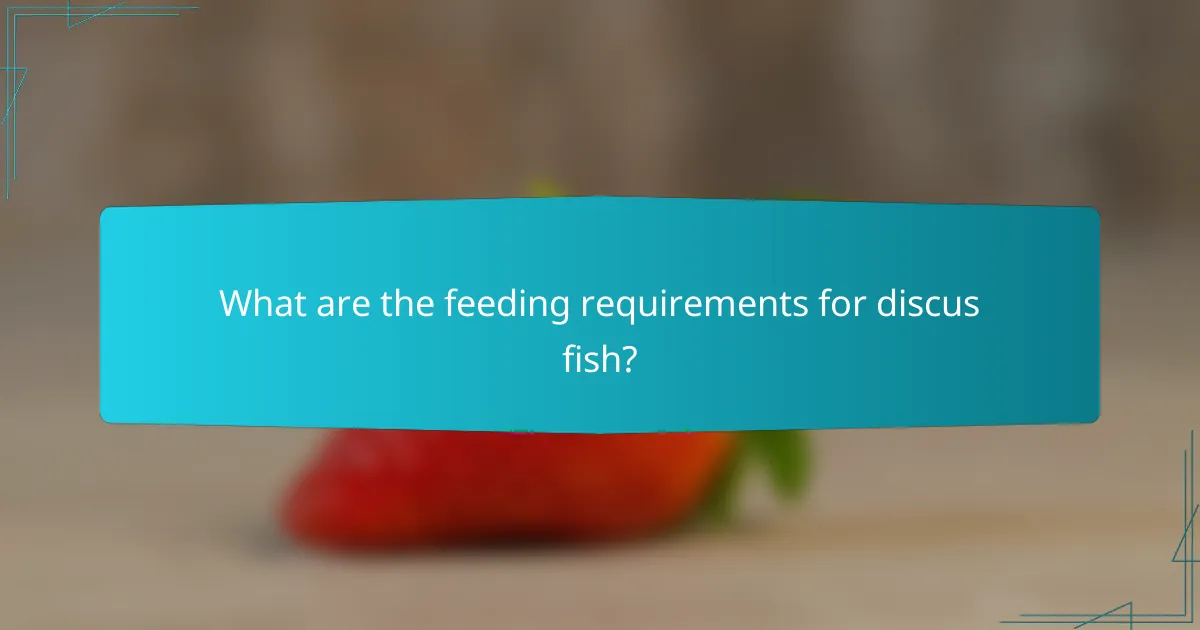
What are the feeding requirements for discus fish?
Discus fish require a diet that is high in protein and rich in nutrients to thrive. Their feeding needs are crucial for their health, growth, and vibrant coloration.
High-protein diets
Discus fish thrive on high-protein diets, which are essential for their growth and overall health. A diet consisting of around 40-50% protein is ideal, as it supports their metabolic needs and helps maintain their vibrant colors.
Common protein sources include fish meal, shrimp, and other aquatic proteins. It is important to ensure that the protein is of high quality to promote optimal health.
Quality pellets and flakes
High-quality pellets and flakes specifically formulated for discus fish are a convenient feeding option. Look for products that list whole fish or shrimp as the first ingredient and contain a balanced mix of vitamins and minerals.
Feeding a variety of these products can help ensure that discus receive a well-rounded diet, but avoid those with excessive fillers or artificial additives.
Frozen and live foods
Incorporating frozen and live foods into a discus fish’s diet can enhance their nutritional intake and stimulate natural hunting behaviors. Options like bloodworms, brine shrimp, and daphnia are excellent choices.
These foods not only provide essential nutrients but also encourage active feeding, which is beneficial for their health and well-being.
Feeding frequency
Discus fish should be fed multiple times a day, ideally two to three times, to mimic their natural feeding habits. Each feeding session should consist of small amounts of food that can be consumed within a few minutes.
Overfeeding can lead to water quality issues and health problems, so it is crucial to monitor their intake and adjust accordingly.
Supplementing with vitamins
Supplementing discus fish diets with vitamins can promote immune health and enhance coloration. Vitamins such as C and E are particularly beneficial and can be found in specialized fish food or as separate supplements.
Regularly adding these supplements can help ensure that discus fish remain healthy and vibrant, especially in a controlled aquarium environment.

What are the signs of stress in discus fish?
Discus fish exhibit several signs of stress that can indicate poor water quality or social issues. Recognizing these signs early can help prevent serious health problems and ensure a thriving aquarium environment.
Faded colors
One of the most noticeable signs of stress in discus fish is faded colors. Healthy discus display vibrant hues, while stressed individuals may appear dull or washed out. This change can be a direct response to poor water conditions or inadequate tank mates.
To address this, regularly monitor water parameters such as pH, ammonia, and nitrate levels. Keeping these within optimal ranges can help restore the fish’s coloration.
Hiding behavior
Discus fish that are stressed often exhibit hiding behavior, retreating to corners or behind decorations. This behavior indicates that the fish feel threatened or uncomfortable in their environment. Stressors may include aggressive tank mates or sudden changes in water conditions.
To reduce hiding, ensure that the tank is spacious and well-decorated, providing plenty of hiding spots while also allowing open swimming areas. Observe interactions among fish to identify any aggressive behaviors that may need to be addressed.
Rapid gill movement
Rapid gill movement is another critical sign of stress in discus fish. When fish breathe rapidly, it often indicates that they are struggling to obtain sufficient oxygen, which can be caused by poor water quality or high levels of toxins.
To alleviate this issue, check the oxygen levels in the aquarium and consider increasing aeration through air stones or water movement. Regular water changes can also help maintain a healthy environment, reducing stress on the fish.





